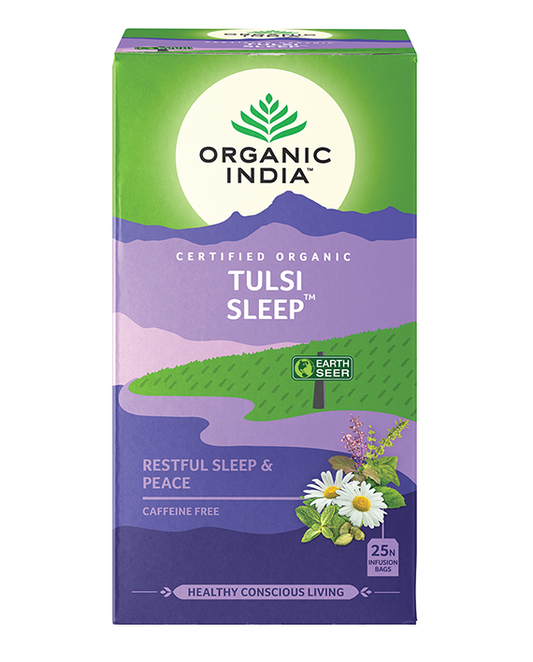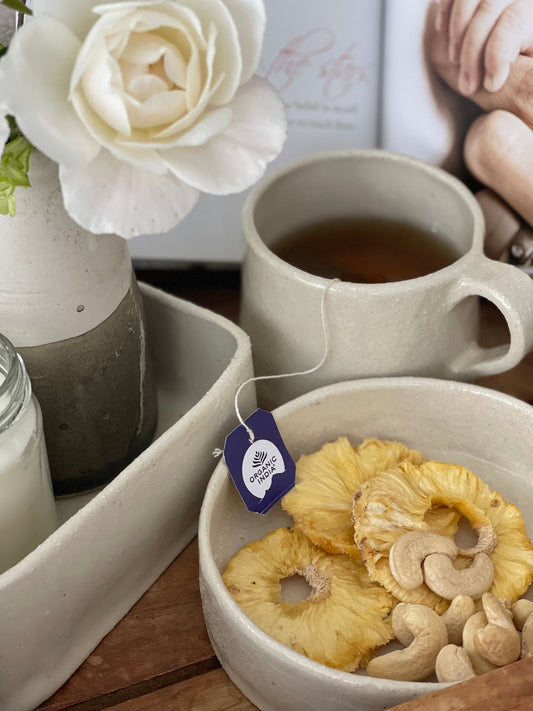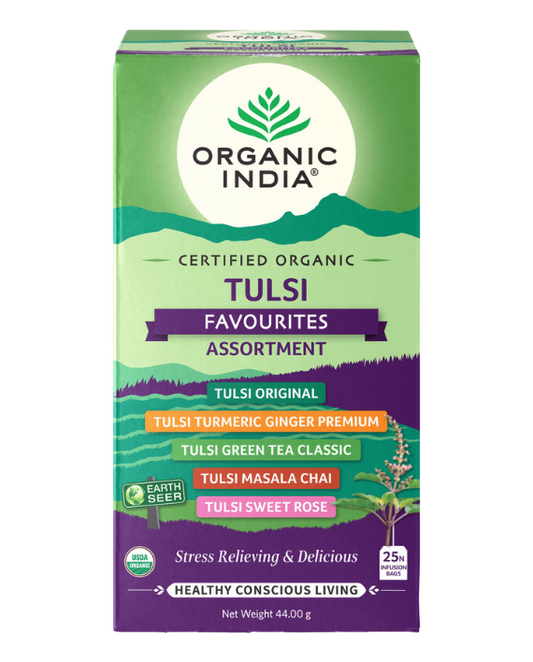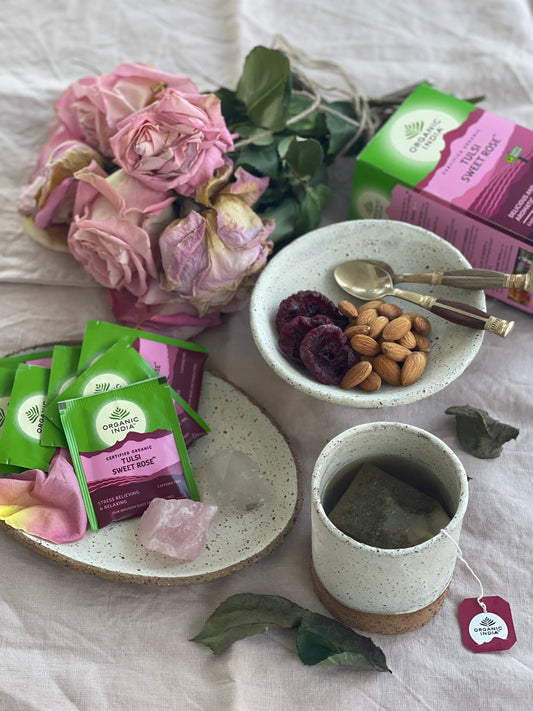
Sleep Blends
Every Sip Makes A Difference. Tulsi, also known as Holy Basil, is a herb revered by Ayurveda for thousands of years for its ability to support a healthy response to stress.
-
Tulsi SLEEP
5.0 / 5.0
(5) 5 total reviews
Regular price $11.00Regular priceUnit price / per -
Tulsi Honey Chamomile
5.0 / 5.0
(4) 4 total reviews
Regular price $10.00Regular priceUnit price / per -
Tulsi Favourites Collection
5.0 / 5.0
(2) 2 total reviews
Regular price $10.00Regular priceUnit price / per -
Tulsi Original
5.0 / 5.0
(8) 8 total reviews
Regular price $10.00Regular priceUnit price / per
Collection: Sleep Blends
There are a number of things that you can do to make sure that you get an optimal sleep every night and thereby keep your immunity levels at their peak.
- The first and perhaps the most important is to maintain a regular sleep pattern. This means going to bed and waking at approximately the same time every day – yes, that includes the weekends.
- To ease yourself into a workable pattern, you can put markers or a routine in place that prepares the body to relax and to eventually sleep. For example, it’s not recommended that you sleep on a full stomach so make sure you eat your last meal early enough for you to be able to at least digest some of it before you go to sleep.
- Try adding a warm, comforting drink to your bedtime routine. Drinking a tea, like Tulsi, which is known for its restorative and calming properties (and is caffeine free), prepares the body for the night ahead. Teas with chamomile or peppermint can also induce that sleepy feeling, or herbal functional sleepy-time teas can often do the trick.
- Prepare your bedroom well because, as we all know after spending hours tossing to and fro, getting into bed doesn’t necessarily mean falling asleep. It’s a good idea to make sure that your bedroom is suitably soporific. Ideally, your room needs to be as dark as possible by eliminating street lights and keeping any flashing mobile phone lights or standby lights to the bare minimum.
- The same goes for noise. If you can, rid beeping phones and any whirrs and buzzes from your bedroom. Failing that, reach for the earplugs and try to remember to put them in before you go to sleep so you don’t wake up to a noise and then struggle to fall back to sleep.
- Also, avoid overheating your room, even if you do initially feel cold. A temperature of about 19°C is best for a non-disturbed sleep pattern that allows your body to work on repairing and restoring your body and keeping your immunity levels at their optimum.









